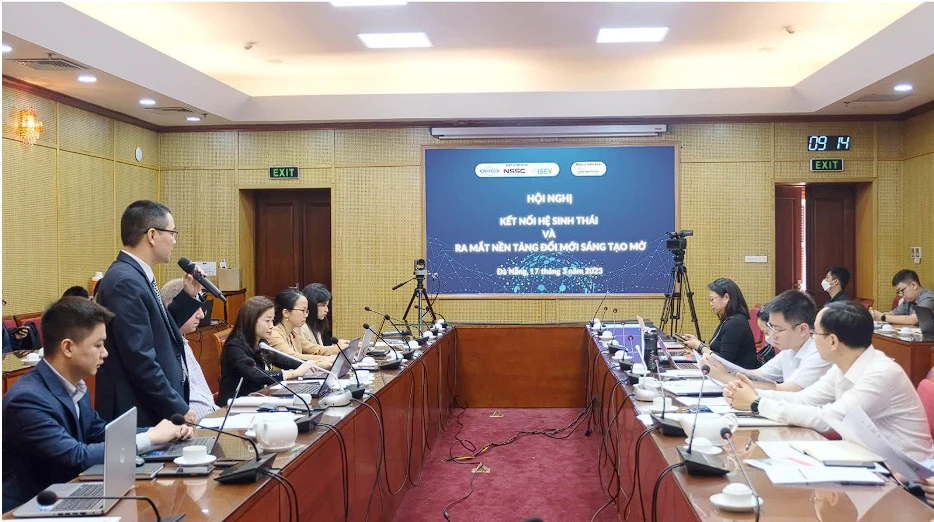As the world faces mounting challenges regarding food security, environmental degradation, and nutritional inequality, the development of sustainable food solutions has become more critical than ever. The technology of producing biological protein through yeast fermentation is increasingly recognized as a breakthrough solution, not only globally but also in Vietnam.
Yeast Era: Vietnam’s Pioneering Force in Fermented Protein
According to Yeast Era, a pioneering startup and the champion of the National Technopreneur Competition at Techfest 2024, this technology involves a flexible fermentation process using a variety of input materials. Depending on local availability, Yeast Era can utilize cassava starch, rice starch, or surplus agricultural products such as fresh fruits as the carbon source for fermentation. This flexibility maximizes the use of local resources while reducing post-harvest losses in agriculture.
Yeast Era’s fermentation process takes approximately 16 to 20 hours, uses no harmful chemicals, and generates no environmental emissions. The resulting yeast-based protein product has an export value 4 to 10 times higher than the input material. According to the company, they have successfully registered four patents and have initiated commercial-scale production.
Global Trends and Technological Advantages
Globally, this advanced technology is currently being researched, developed, and commercialized by only a select group of leading enterprises in countries such as the United States (Perfect Day), Finland (Solar Foods), and China (Angel Yeast). This technology enables the creation of protein without the need for arable land or abundant clean water, while significantly reducing greenhouse gas emissions. A standout feature of this model is its scalability at a reasonable cost, aligning with the global trend toward green and sustainable food production.
From Protein to Fruit Powder: Maximizing the Platform
Beyond protein products, Yeast Era has expanded applications from the same technological platform to produce biological fruit powder. By using surplus agricultural produce, especially fresh fruit, this technology preserves natural nutrients and allows storage at room temperature for up to 24 months, eliminating the need for cold chains or chemical preservatives. This offers an innovative, practical solution to enhance the value of agricultural products and meet increasingly stringent international export standards.
Three Pillars for Sustainable Economic Development
Overall, the yeast fermentation protein production technology promises to contribute significantly to three major directions of sustainable economic development:
- Transforming the food industry from traditional livestock-based production to modern, environmentally friendly biotechnology solutions.
- Shifting agriculture from raw material exports to the development of high-value-added products, boosting competitive capacity.
- Deepening integration into the global supply chain, not only by exporting products but also by exporting internal technological capabilities.
Recommended Development Directions
To fully harness this technology’s potential, several development directions should be considered:
- Establishing a regulatory sandbox for biological protein and new food technologies, creating favorable conditions for product testing and development under a controlled yet flexible legal framework.
- Integrating sustainability and high nutritional standards into public procurement regulations to promote sustainable food products in national supply chains.
- Enhancing public awareness and communication on sustainable food solutions, while collaborating with international organizations to expand global market visibility.
- Implementing supportive financial policies, including tax incentives, credit guarantees, or mobilizing funds from green financing sources to aid in production scaling.
- Developing programs to support market entry, particularly into promising regions such as Africa and the Middle East, aligned with humanitarian aid or international development cooperation initiatives.
A Vision for Vietnam’s Global Role
Vietnam is poised to become a pioneering nation in biological protein production, contributing to global food security, enhancing the value of its agricultural products, and asserting its position as an innovation-driven country on the global stage. With the concerted efforts of government agencies, the business community, and innovation support organizations, this technology can truly become a cornerstone of green growth and sustainable development in the coming years.
The Partnering for Green Growth and the Global Goals 2030 (P4G) Summit was established in 2017 based on an initiative by the Government of Denmark, evolving from its predecessor—the Global Green Growth Forum (3GF). To date, the P4G platform comprises 12 core member countries: Denmark, Chile, Mexico, Vietnam, the Republic of Korea, Ethiopia, Kenya, Colombia, the Netherlands, Bangladesh, Indonesia, and South Africa. In addition, it enjoys participation from over 90 countries, international organizations, and private sector entities. Vietnam is one of the seven founding members, a formal partner of P4G, and will proudly host the 4th P4G Summit in 2025.
Recognized as a leading global platform for advancing public–private partnerships, P4G connects governments, businesses, and civil society organizations to jointly propose breakthrough solutions for green growth. These efforts contribute meaningfully to the realization of the 2030 Sustainable Development Goals (SDGs). P4G support to its partner countries primarily takes the form of public–private cooperation, offering both financial and technical assistance to micro, small, and medium-sized enterprises implementing climate action initiatives.
As part of the P4G Summit 2025, the Ministry of Science and Technology will host the Policy Dialogue Forum on Encouraging investment, business and promoting entrepreneurship in the field of green transition and sustainable development. The event, coordinated by the National Startup Support Center, will bring together leading experts, policymakers, businesses, investment funds and startups from Vietnam and around the world to share experiences, propose solutions for fostering a sustainable startup ecosystem and explore collaboration opportunities.
- Date & Time: 9:00 – 11:15 AM, April 16, 2025
- Venue: Room 339, National Convention Center, Hanoi
- Key topics:
- Legal frameworks and policy mechanisms to support green startups and sustainable business practices.
- International experiences in developing sustainable startup ecosystems, including successful models and best practices applicable to Vietnam.
- Future outlook: Trends, opportunities, and strategies to enhance the competitiveness of innovative startups in the global green transition.





